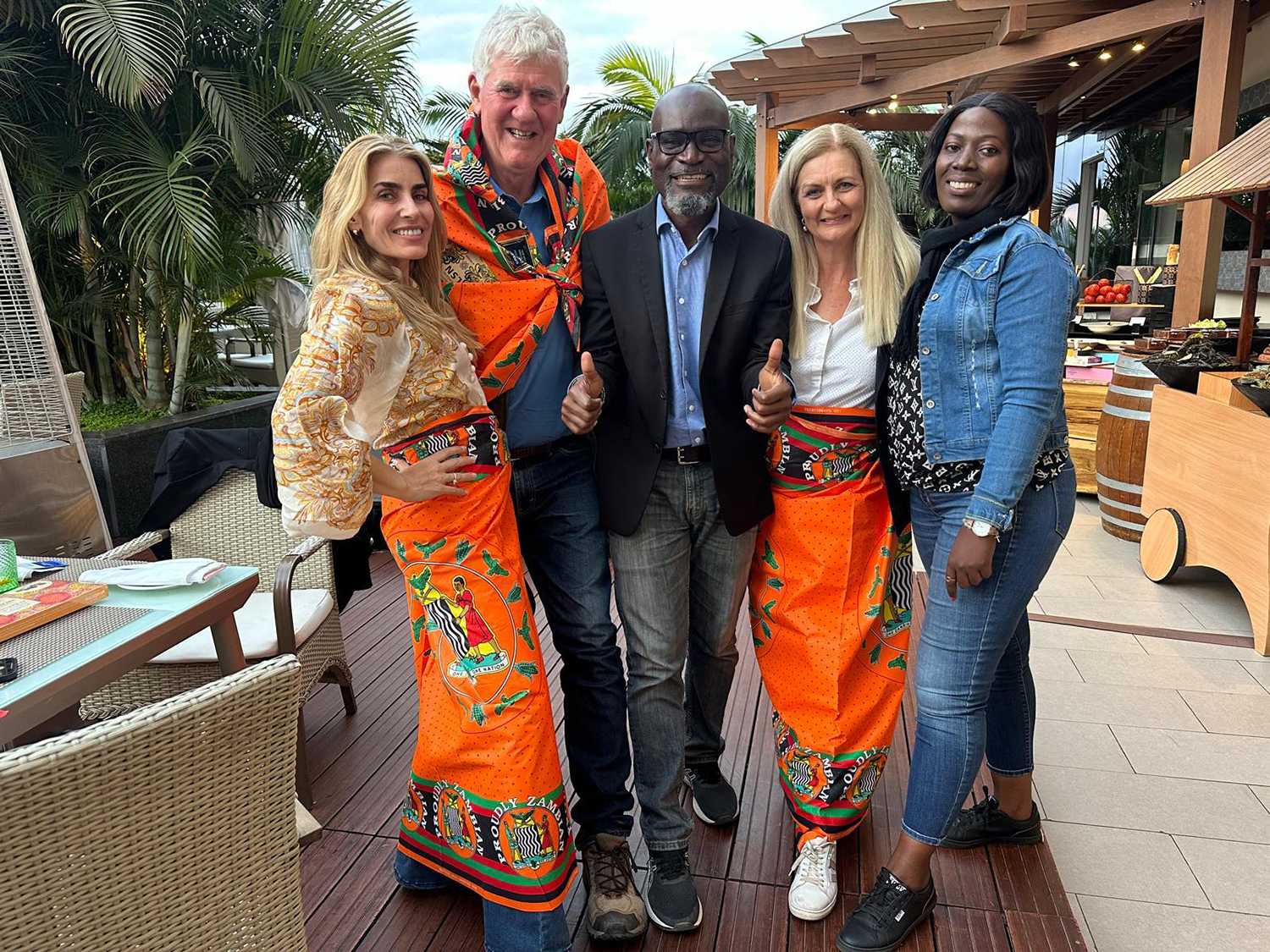The Regenerative Agriculture and Livestock Delegation from left to right: Cristina Talacko, CEO of Coalition for Conservation, Deane Belfield, a regenerative farmer and Director of Regenerative Farmers Australia, His Excellency Ambassador Dr Elias Munshya, Carolyn Hall, CEO of Mulloon Institute and Miss Felistus.
PArt 1 of A blog series by CEO Carolyn Hall on her visit to Zambia in July, 2024.
Amazing things happen when you say yes. In June 2024 following agreeing to be on a webinar discussing landscape rehydration and regenerative agriculture for a drought-impacted Zambia, I was invited by the Coalition for Conservation to join a Regenerative Agriculture and Livestock Delegation (the delegation) to Zambia. Zambia is a landlocked country in southern Africa experiencing the worst drought in 40 years.
The impact of the drought is being felt across the region as Zambia is the second largest maize-producing country in Southern Africa after South Africa. No rains in February 2024 saw the maize crop across southern Zambia fail, leaving parts of the country in famine and a shortfall in maize exports to countries in the region. This brings a new perspective to food security when nursing mothers can no longer feed their babies.
Funded by the Bill and Melinda Gates Foundation, The delegation included His Excellency Ambassador Dr. Elias Munshya, High Commissioner for Zambia to Australia and New Zealand; Cristina Talacko, CEO of C4C; Carolyn Hall, CEO of the Mulloon Institute; and Deane Belfield, a regenerative farmer and Director of Regenerative Farmers Australia. Our mission was to share knowledge, engage with local stakeholders, and explore potential collaborative solutions to combat climate change’s impact on agriculture.
We met with Government Ministers and Departments, policymakers, a range of Non-Government Organisations, Indigenous Chiefs and farmers to strengthen relationships between Zambia and Australia and share knowledge about Australia’s experience in regenerative agriculture and landscape rehydration can contribute to Zambia’s food and water security in the face of the devastating drought.
What we discovered was a vibrant energetic country openly looking for knowledge and strategies that can contribute to the development of agriculture in Zambia in the face of climate change. Currently, agriculture is dominated by small-scale, subsistence farmers (largely women) producing maize, soybeans, wheat and vegetables on 1 or 2 hectare lots, using largely conventional methods based on costly synthetic inputs. Their produce not only feeds their own families but is aggregated into a national maize crop for sale across Zambia and for export. Education and capacity building through demonstration sites focused on building soil health and improved landscape-scale water management will contribute to climate-resilient agriculture in Zambia.
